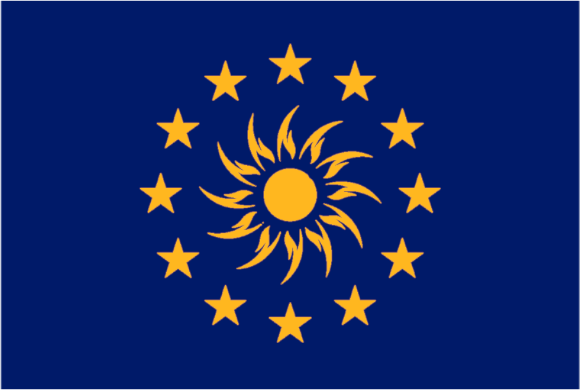
The Paneuropean Union, often regarded as a quasi-superstate due to its extensive territorial reach spanning from Western Europe to the farthest reaches, emerged in 1905 subsequent to the adoption of the Pan-European Charter. Established as a Federal Republic, it operates under a democratic framework, electing officials through democratic processes while upholding principles of liberty and European sovereignty. However, its inception was met with vehement opposition from formidable powers such as the Russian Empire and Great Britain, who perceived it as a destabilizing force challenging the established global balance of power. Comprising a coalition of influential nations including Germany, Italy, France, Belgium, Luxembourg, and the Netherlands alongside their respective colonies, the Paneuropean Union emerged as a vast and multicultural global power.
The dominant languages within its domain include German, Dutch, French, and Italian. Initially characterized by democratic, liberal, and free governance, guided by principles of revolutionary democracy, republicanism, and liberty, the Paneuropean Union underwent a profound transformation following a catastrophic economic downturn. This event precipitated a significant shift in the European power dynamics, leading to the financial collapse of the British Empire and providing fertile ground for the rise of far-right accelerationist factions within the Paneuropean Union. In contemporary times, the Paneuropean Union has devolved into an authoritarian regime circa 1949, as the authoritarian ruler Volker Schulte took control of the nation. Espousing the principles of accelerationism—an extremist ideology advocating for radical societal restructuring focused on relentless pursuit of 'progress', encompassing technological, scientific, and economic advancements at any cost, regardless of potential ramifications.
The aggressive expansionist policies pursued by the Paneuropean Union have sparked concerns regarding the emergence of a new world order under its hegemony, prompting various factions to mobilize against its encroachment. Yet, the ultimate victors in this enduring and tacit conflict remain uncertain, as the balance of power teeters on the brink of uncertainty.